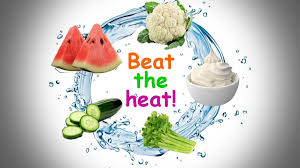Unveiling the Power of Clinically-Proven Super-Nutrients for Sustainable Weight Loss
Embarking on a journey towards healthy and sustainable weight loss often involves a combination of balanced nutrition, regular exercise, and, in some cases, the strategic incorporation of clinically-proven super-nutrients. In this blog post, we’ll explore the fascinating world of compounds known for their ability to burn fat, boost metabolism, and support a healthier lifestyle. Among these remarkable super-nutrients are Camellia Sinensis, Resveratrol, Genistein, Chlorogenic Acid, and Choline.
- Camellia Sinensis: Harnessing the Power of Green Tea
One of the most well-known and extensively studied super-nutrients is derived from the leaves of Camellia Sinensis, the plant responsible for producing green tea. Green tea contains a high concentration of catechins, particularly epigallocatechin gallate (EGCG), which has been linked to various health benefits, including weight loss.
EGCG works by enhancing the body’s ability to burn fat and promoting thermogenesis, the process through which the body generates heat and energy from digesting food. Clinical studies have consistently demonstrated the positive impact of green tea on weight loss. Regular consumption not only aids in fat oxidation but also supports overall metabolic health, making it a valuable addition to any weight loss regimen.
- Resveratrol: Red Wine’s Secret Weapon
Resveratrol, a natural compound found in the skin of red grapes and subsequently in red wine, has gained attention for its potential role in promoting weight loss and overall well-being. This polyphenol is known for its antioxidant properties, which contribute to the reduction of inflammation and oxidative stress in the body.
Recent research suggests that resveratrol may play a role in activating sirtuins, a group of proteins linked to cellular regulation and metabolism. By influencing these pathways, resveratrol may contribute to improved fat metabolism and energy expenditure. While the connection between resveratrol and weight loss is still a subject of ongoing research, incorporating moderate amounts of red wine or resveratrol supplements into a balanced diet may offer additional support for those aiming to shed excess pounds.
- Genistein: A Soy-Based Ally for Weight Management
Genistein, a phytoestrogen found predominantly in soy products, has garnered attention for its potential role in weight management. Phytoestrogens are plant-derived compounds that mimic the action of estrogen in the body. Studies have explored how genistein influences metabolism and fat storage, with some evidence suggesting that it may help regulate body weight and reduce fat accumulation.
Moreover, genistein’s ability to modulate hormonal activity may contribute to its impact on weight loss, particularly in women. As part of a balanced diet, incorporating soy-based foods or genistein supplements may offer a natural and clinically-supported approach to supporting healthy weight management.
- Chlorogenic Acid: The Weight-Loss Potential of Coffee Beans
Chlorogenic acid, abundant in unroasted coffee beans, has been linked to several health benefits, including weight loss. This powerful antioxidant is believed to affect metabolism by inhibiting the absorption of carbohydrates and promoting the use of stored fat for energy.
Clinical studies have explored the impact of chlorogenic acid on body weight, with results suggesting that it may contribute to modest reductions in body mass. Additionally, chlorogenic acid has been associated with improvements in insulin sensitivity, making it a promising super-nutrient for those aiming to manage weight and support metabolic health.
- Choline: The Essential Nutrient for Fat Metabolism
Choline, an essential nutrient often grouped with B-vitamins, plays a crucial role in various physiological processes, including fat metabolism. Choline is a key component of cell membranes and is involved in the transport and metabolism of fats in the liver.
Studies have shown that adequate choline intake is associated with a lower risk of non-alcoholic fatty liver disease (NAFLD), a condition linked to obesity. By supporting liver function and lipid metabolism, choline may contribute to a healthier weight profile. Incorporating choline-rich foods, such as eggs, lean meats, and certain vegetables, can be an effective strategy for ensuring optimal choline intake.
In the pursuit of sustainable weight loss, the incorporation of clinically-proven super-nutrients can be a valuable complement to a well-rounded diet and regular exercise. Camellia Sinensis, Resveratrol, Genistein, Chlorogenic Acid, and Choline each bring unique benefits to the table, from enhancing fat metabolism to supporting overall metabolic health.




